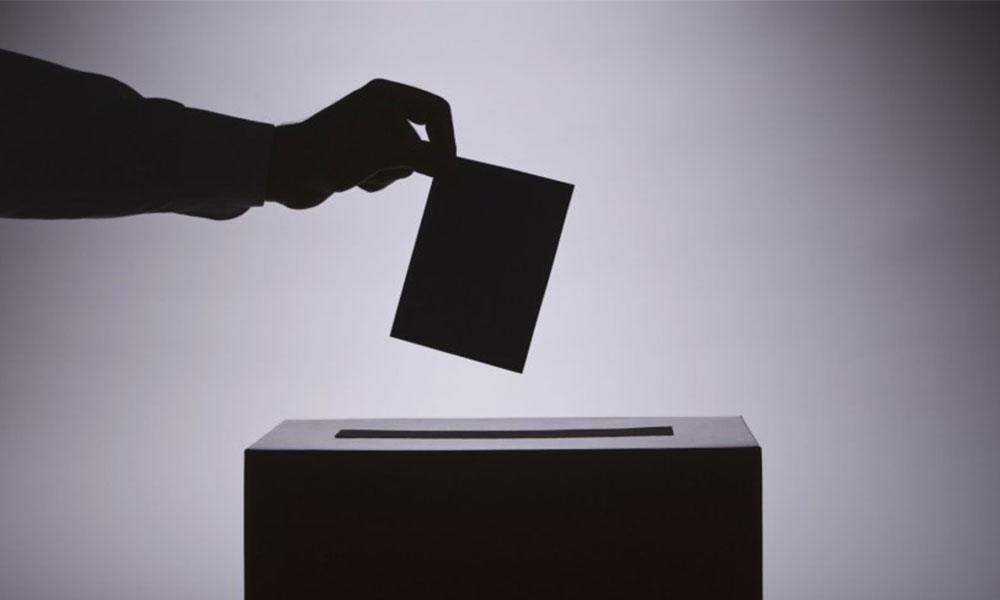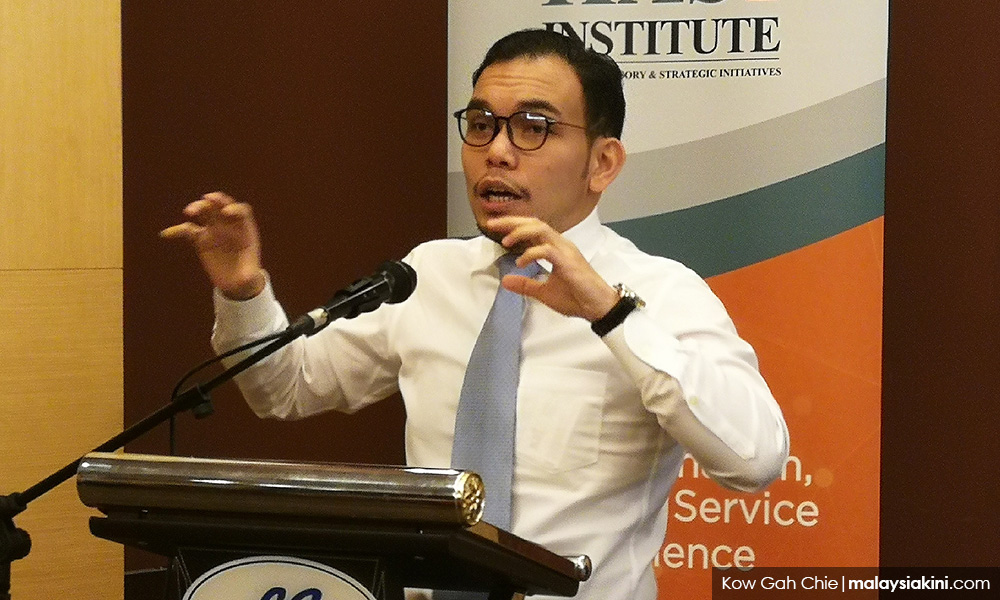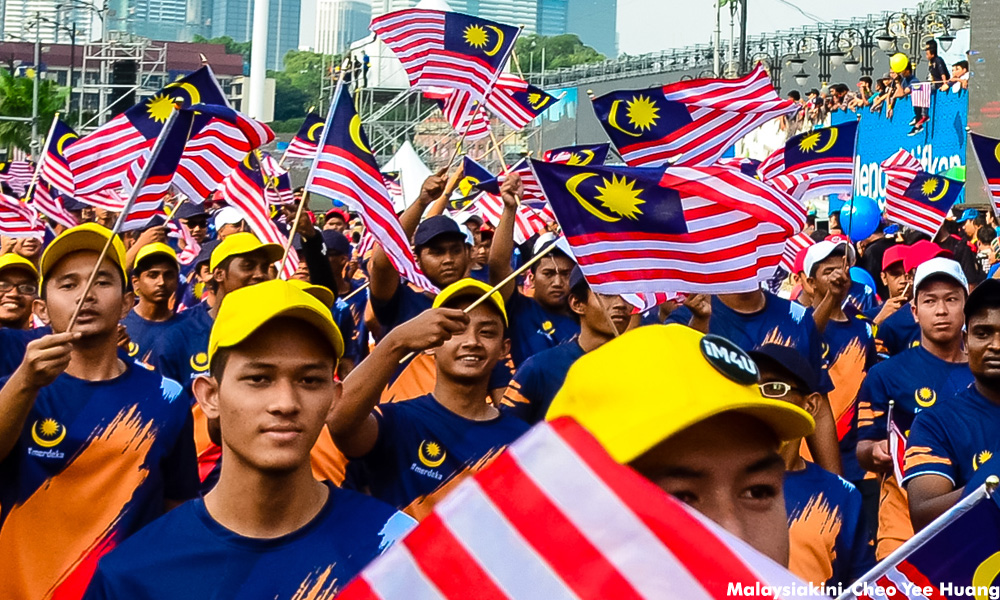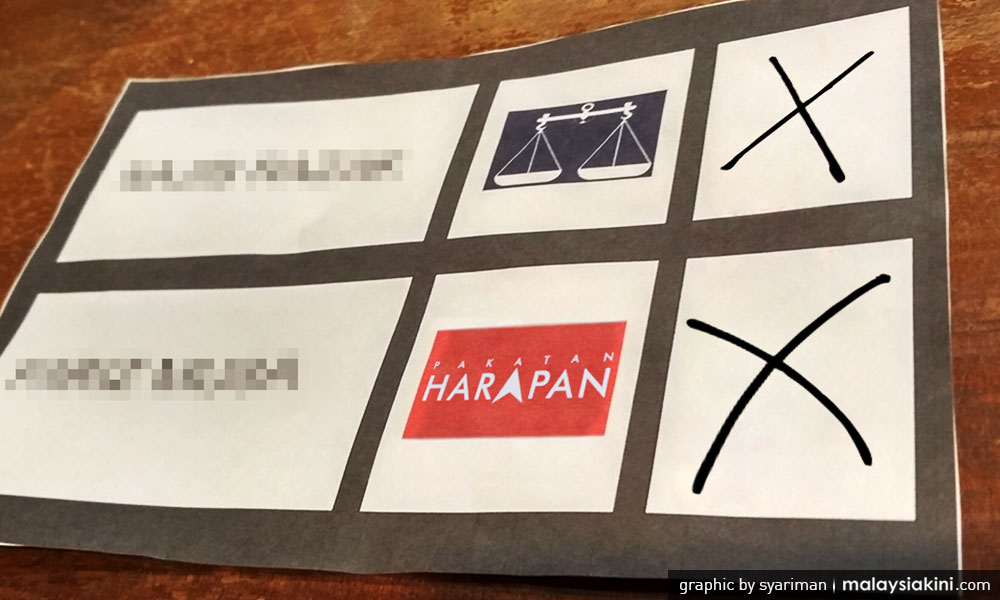
“Even voting for the right is doing nothing for it. It is only expressing to men feebly your desire that it should prevail. A wise man will not leave the right to the mercy of chance, nor wish it to prevail through the power of the majority. There is but little virtue in the action of masses of men.”
– Henry David Thoreau, Civil Disobedience and Other Essays
The discourse surrounding the Pakatan Harapan regime's agenda of lowering the voting age from 21 to 18 revolves around the silly notion that it takes “maturity” to mark a ballot paper.
A long time ago, when I was still serving in the state security apparatus, a young man asked me what I thought of the possibility of 18-year-olds voting. My answer remains the same now as it was then. If you ask a young person to defend and kill for his or her country, then the young person has a right to determine who is asking him or her to do the killing.
Proponents of lowering the voting age, who argue that 18-year-olds are “mature” enough to make a decision on who runs the country, should also concede that these same teenagers are not mature to make that decision.
Meanwhile, proponents of maintaining the status quo have to concede that their definitional ideas of “maturity” mean bupkus in the face of successive regimes that 'mature' Malaysians have voted for and which has taken this country from a nascent Asian Tiger to a kleptocratic enabling Asian pussycat.
This is all rather silly, considering in democracies, especially two-party democracies, what is prevalent is a Manichean impulse to correct whatever wrongs a voter thinks are destroying his or her country through the ballot box.

It also means that partisans, more often than not, view their political opponents as lacking in maturity or ignorant, while secure in the knowledge that their vote is not only legitimate, but also morally and intellectually sound.
This would mean something if politicians actually delivered on their promises, which is rarely the case. Instead, what politicians rely on is not “maturity,” but partisanship to bolster support and maintain political hegemony.
Furthermore, people vote for various reasons. Voting in a government is rarely based on objective reasoning or rationality, but rather emotional reasons which often would not stand up to scrutiny.
Indeed, voters often make compromises in terms of how they view the political personalities and parties they are voting for, making all sorts of excuses as to why they should vote for their preferred candidate, instead of not voting if the choices are equally bad or meaningless, or even spoiling their vote.

Lim Kit Siang’s political secretary Syahredzan Johan (above) listed the obvious talking points when it comes to allowing 18-year-olds to vote, and while I am simpatico to these arguments, we have to remember that voting also includes the legitimate and, I would argue, moral choice of spoiling your vote or not voting at all.
A good example of this is Syahredzan’s tweet last year, after Harapan’s historic win, where he wrote – “You know why #UndiRosak failed? Because we have not yet come to a point where voters see PH and BN as identical choices. Even the most cynical see PH as a lesser evil. And #undirosak proponents could not articulate their views further than 'we need a better opposition'.”
Now the “lesser evil” argument is one I used before the election and, admittedly, is one of the more virulent kinds of propaganda, especially considering the post-election reality of Umno frogs backpedalling, the racial and religious pandering of non-Malay politicians, lies, and most of all, the subservience to Prime Minister Dr Mahathir Mohamad.
The “lesser evil” argument was used and still is being used to justify all sorts of political malfeasance and the only thing keeping the base happy is not institutional reforms, but rather, the ongoing criminal trials against former prime minister Najib Abdul Razak.
If people think that “maturity” means subscribing to these arguments, I suggest they are conflating the meanings of pragmatism and maturity, or maybe they do not understand what hypocrisy means.
So, when Syahredzan talks about “political maturity” coming with education, what he fails to grasp is that education means not subscribing to propaganda, but more importantly, making an informed choice, which is rarely what elections are about. Which is why people who claim that the government needs to “educate” young people about voter education and constitutional awareness are missing the point.

Azly Rahman makes the same mistake in his piece, in questioning whether 18-year-olds are ready to vote. While the state should educate its citizens on their rights and responsibilities, the idea that there should be government intervention when it comes to the “reasons” for voting is dangerous. Expecting young people to be educated on a third force, for example, is not and should not be the mandate of the government.
People forget that the most vocal young supporters of the undi rosak crowd did support third party candidates, but the media, partisans and political hegemons conspired to make their choice irrelevant.
This is really what this issue is about. It is not the maturity, or the lack of, of 18-year-olds, but rather the lack of choice and the way how the political system in this country (and elsewhere) exists to serve a two-party dynamic.
Furthermore, the electoral process, be it debates or any other form of “entertainment,” does not contribute in any meaningful way to rational choices when it comes to elections.
Money politics, racial and religious issues, are issues which should be dealt with by the legal system or any other government body meant to regulate specific types of provocation. However, unfortunately, we can only have these if we have independent institutions and provisions within the Federal Constitution to make it clear that we are an egalitarian society.
Using "education" in any form to deny 18-year-olds the right to vote, especially on the grounds of immaturity, is part of the problem and not the solution. This is especially so when there are government propaganda steeped in racial and religious politics, a compromised Constitution, and a bureaucracy that enables supremacist attitudes because the political class gives them the power.

People forget that the media helps shape the narrative when it comes to voting, and partisanship in the media is just as virulent as partisanship among voters. Furthermore, the reality is that trolls, paid or otherwise, influence election and muddy the waters when it comes to issues that potential voters care about and complicate the voting process, which again has nothing to do with maturity.
Maturity does play a part when it comes to informed voting, and what encourages informed decisions is access to information, which should be a priority in this country, but which the political class wants to control through various laws that restrict free speech.
PAS' stand on the issue should be applauded. The party claims it will support this initiative if certain conditions are met. The first is automatic registration and the second is making voting compulsory.
While both are legitimate conditions, I am in support of the former, but not the latter. I am averse to giving the state more control than it already has, although the idea of spoilt votes in a compulsory voting system amuses me.
PAS politicians think that young people, educated in the religious education system, understand where they are coming from more than the kids educated in national schools. These conditions are conducive to the Islamic mindset of PAS because "compulsory" voting is akin to a kind of "fatwa", which makes it an obligation for Muslims, if they vote, to support Islamic parties. PAS comes off better in this than the other Muslim power structures.
Maturity is not an issue when it comes to voting, but if one is concerned about informed choices, it is the restrictions and limitations of choice brought on by the political class, the media and partisanship, which hampers this, and this affects everyone, regardless of age.
Ultimately, denying 18-year-olds the right to express how they feel through the ballot box, when older people are doing just that, is further stifling the democratic process in this country, which is badly in need of more democracy, not less.
S THAYAPARAN is Commander (Rtd) of the Royal Malaysian Navy. A retired barrister-at-law, he is one of the founding members of the National Patriots Association. - Mkini


No comments:
Post a Comment
Note: Only a member of this blog may post a comment.